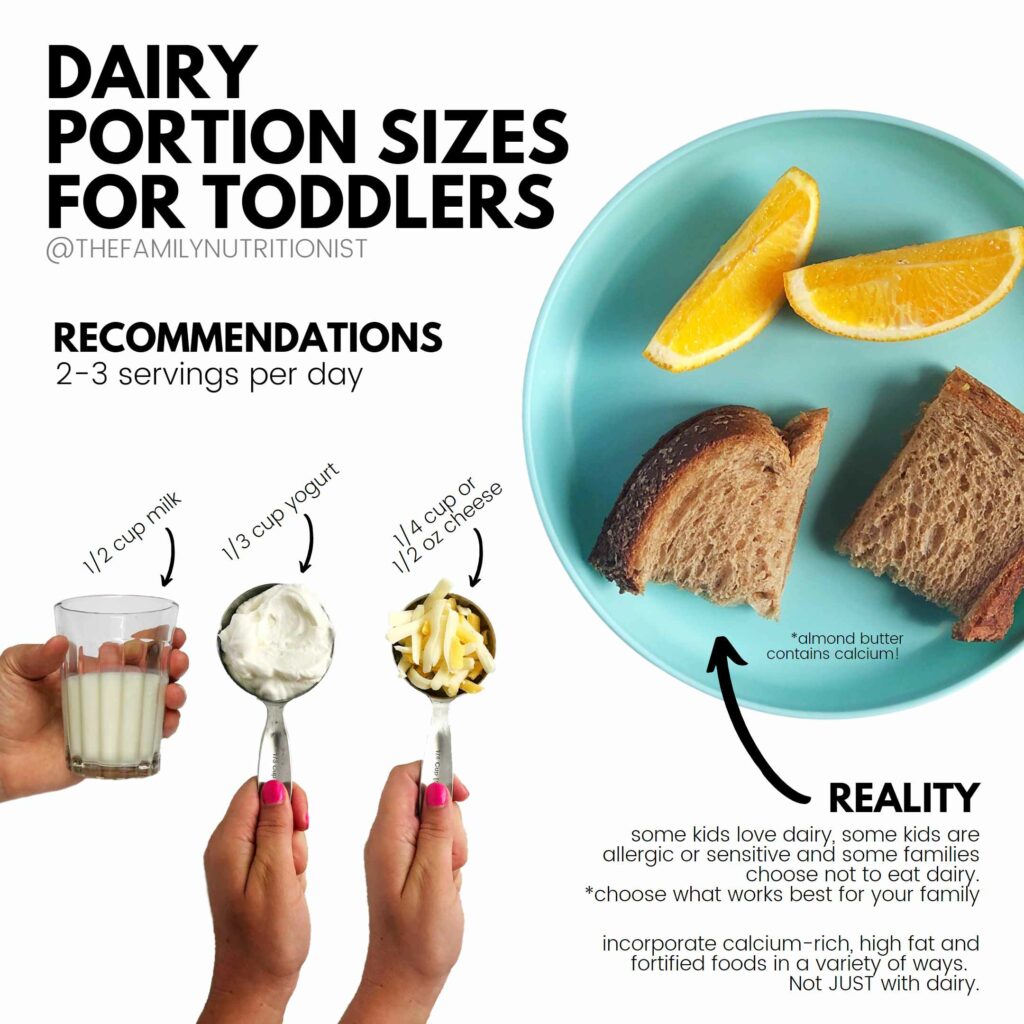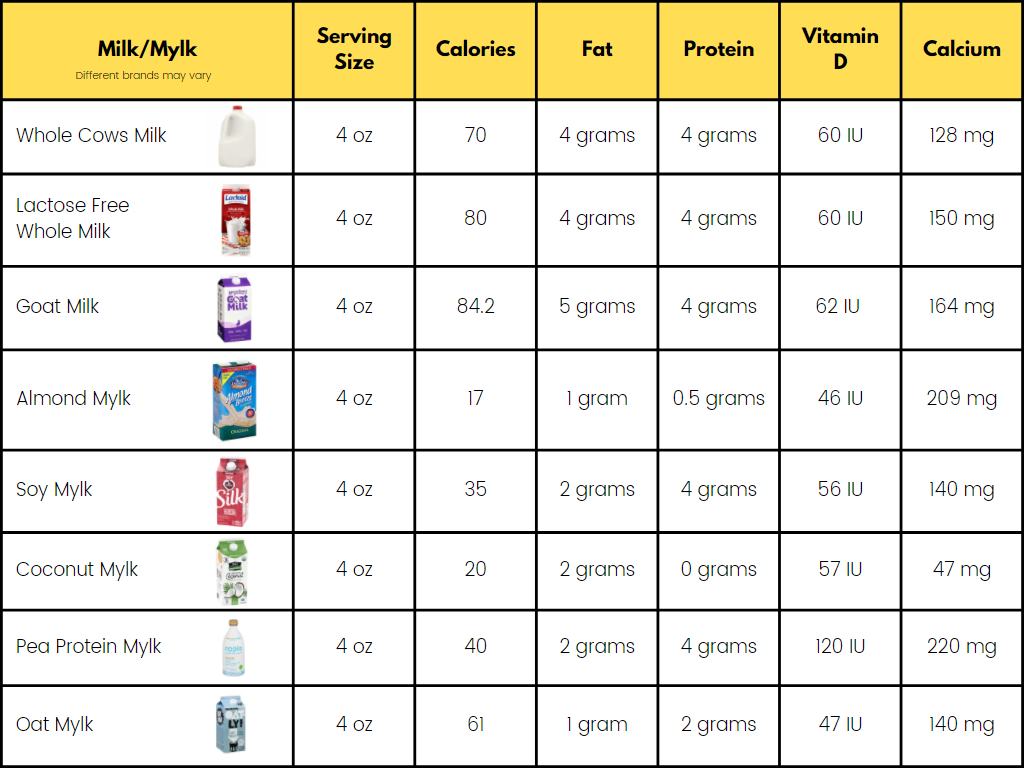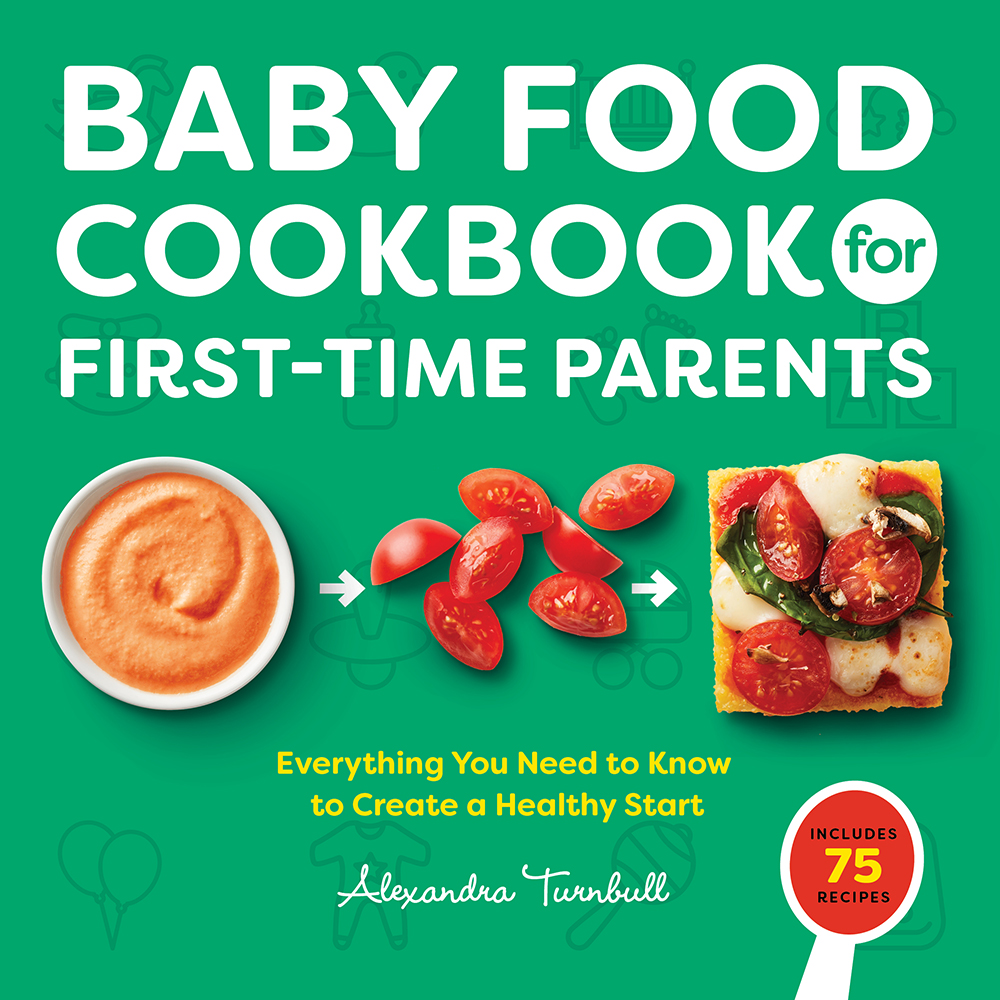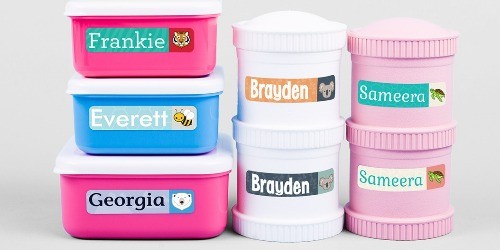
Is it time for your toddler to start drinking milk with the rest of the family? Congratulations on reaching another milestone!
Now that it is time to introduce milk, are you finding yourself questioning what is the best milk for 1 year old?
Cow’s milk has always been the go-to milk for many families when their toddler is ready to start drinking less breast milk or formula, but what about soy milk or almond milk? Do you HAVE to give your toddler cow’s milk or is there an option for milk alternatives for toddlers?
In this post, I will walk you through dairy recommendations, some info to help you decide whether cow’s milk is right for you, and what things to look for when choosing milk alternatives.
Table of Contents
Current Dairy Recommendations for Toddlers
The American Academy of Pediatrics (AAP) recommends introducing cow’s milk at 12 months – specifically whole milk.
Why should milk for 1-year-old be whole milk?
At this age, your child is going through rapid growth, and therefore needs an increase in calories and fat, which whole milk is perfect for.
Once your toddler hits two years old, you can transition off of whole milk if you’d like, but feel free to continue giving whole milk, especially if your child needs some help gaining weight.
I personally still give both my 2 and 4-year-old whole milk, so the decision is all yours!
Why Cow’s Milk?
Cow’s milk contains nutrients such as protein, fat, and calcium that are essential to the growth and development of a toddler. Most cow’s milk sold in the United States is also fortified with vitamin D, another important nutrient that we will touch upon in a bit.
Milk alternatives for toddlers, of course, can be a suitable option if cow’s milk is not for you. However, it is important to note that not all milk alternatives for toddlers are made or fortified with the same amounts of nutrients that cow’s milk has.
That is not to say all milk alternatives are less nutritious than cow’s milk. Milk alternatives are great as long as we know what to look for and to consider, especially when choosing for toddlers!
Does My Toddler Need To Drink Milk?
The answer is no!
Although milk is able to provide nutrients that a toddler needs for growth and development, all those nutrients can be consumed through other foods as part of your toddler’s overall diet.
Some children may not drink any milk at all, but enjoy other forms of dairy such as cheese and yogurt – both of which are also great sources of calcium and vitamin D.
In addition, cow’s milk is not suitable for everyone.
Some toddlers may have food allergies or food sensitivities to cow’s milk protein, and some may have a hard time digesting lactose, the sugar found in milk. In these cases, you may be interested in looking for milk alternatives to give to your toddler.
What Are Some Concerns Around Cow’s Milk?
Some families have concerns about consuming cow’s milk related to the possibility of antibiotics, growth hormones, and pesticides found in cow milk. If you are concerned about this, organic milk can be a good alternative for you!
Another concern some people may have around consuming cow’s milk is for the cows – this can include considering animal rights and welfare, and whether farmers treat their cows ethically when dairy farming.
How Much Milk Does My Toddler Need?
The AAP recommends that toddlers get 2-3 servings of dairy per day. Here are some examples of the portion sizes of dairy for your toddler:
- 1/2 cup of milk (whole milk until two years of age)
- 1/3 cup of yogurt (try offering plain yogurt first if you can, and full fat if under two)
- 1/2 oz or 1/4 cup of cheese
Note: we want to choose whole and full-fat options since high-fat content is important for brain development for toddlers under 2 years of age.

Can My Toddler Drink Too Much Milk?
Now that you have an idea of the recommended amount of dairy your toddler should get per day, what if your toddler absolutely loves milk and dairy and enjoys it more than the recommended amount?
Your toddler might fill up on milk.
Consuming too much milk may cause your toddler to not be hungry enough for other foods with important nutrients. We wouldn’t want them to fill up on milk and miss out on trying new foods! Try to stick to water between meals if at all possible
Constipation.
Some toddlers may experience constipation from drinking too much milk. This is because milk can be so filling yet it does not contain fiber, which is the nutrient that helps us pass our bowel movements.
If you need some more tips to help with your toddler’s constipation, take a look at my blog post on Best Foods to Help Your Picky Eater Poop.
Potential for iron deficiency.
One important thing to watch out for when it comes to drinking too much milk is the potential for iron deficiency. Too much calcium can actually inhibit our bodies from absorbing iron, therefore causing iron deficiency.
Because milk and dairy is a fabulous source of calcium, we want to limit milk to 16 ounces or less per day, 24 ounces at most!
How do I Choose Which Milk is Best for My Toddler?
There are a variety of milk alternatives for toddlers in stores and it can be overwhelming to decide on the right one. Availability and cost can also play a factor in your decision.
No matter what which milk you choose for your child, you’ll want to pay attention to these nutrients:
- Fat
- Calcium
- Vitamin D
- Protein
- Micronutrients
Fat:
Fat is an important nutrient that supports brain development, especially for toddlers under 2 years old.
Remember to go for the whole milk or full-fat options when choosing milk for 1-year-old!
Other lower fat milk options include reduced-fat or 2% milk, low fat or 1% milk, and non-fat or skim milk. Save these lower-fat options for when your toddler is 2 years and older.
Calcium:
Calcium is a mineral that supports bone health, which you can imagine is super important for a growing child in order to build healthy bones and teeth!
Dairy does provide a more bioavailable version of calcium. For instance – you’d have to eat 7 cups of spinach in order to get the same amount of calcium as 1 cup of cow’s milk. However, calcium can still be found in milk alternatives for toddlers, so be sure to look out for calcium in any varieties you’re purchasing!
Vitamin D:
Vitamin D works to help our bones absorb calcium better in order for the bones to build and strengthen.
Most milk alternatives and cow’s milk don’t naturally contain vitamin D, but it is often fortified with vitamin D (meaning vitamin D has been added to the final product).
Protein:
Protein plays a huge role in building and repairing our tissues and muscles, definitely an essential nutrient to help your toddler grow big and strong!
This nutrient is especially important to pay attention to when choosing milk alternatives for toddlers. Most milk alternatives for toddlers have lower amounts of protein compared to cow’s milk.
Take a look at soy milk or pea milk for some higher protein options. There are other milk alternatives for toddlers such as oat milk, nut milk, or rice milk, but their protein levels are lower.
If your toddler enjoys the lower protein milk alternatives, remember to offer some good protein foods so they don’t miss out on this muscle-building nutrient, such as animal meat, eggs, beans, tofu and even quinoa!
Micronutrients:
Some other micronutrients that are typically present in cow’s milk that you may want to have in milk alternatives include:
- Riboflavin (Vitamin B2)
- Vitamin B12
- Vitamin A
- Phosphorus
- Potassium
- Zinc

What To Avoid When Choosing Milk Alternatives for Toddlers
- Added sugars: flavored milk and many fortified soy beverages may contain added sugars. Your toddler does not need these added sugars, so it’s best to look for milk alternatives with no sugar added.
- Unpasteurized milk, also known as raw milk, can contain harmful bacteria that can make your toddler ill, and may potentially be life-threatening. Only give your toddler pasteurized milk.
Final Thoughts
Cow’s milk can be a great source of protein, vitamin D, and calcium, but cow’s milk is not for everyone, whether it is a preference, an allergy, or sensitivity.
There are milk alternatives that can work for your family as long as you keep in mind the fat, protein, added sugars, sodium – and whether it’s fortified with vitamins and minerals.
Not every milk alternative contains the same amounts of nutrients – some have higher fat and protein compared to others. This makes it important to compare the nutrients and choose what works best for your family, obviously considering the taste too!
When it comes to prioritizing important nutrients for growth and development such as fat, protein, calcium, and Vitamin D, goat, pea or soy milk are your better options to get the most bang for your buck with milk alternatives for toddlers.
If you are unsure of what milk alternative to consider, take a look at Milk & Grow’s post on 8 Milk Alternatives For Toddlers Compared To Cow’s Milk. She breaks down the different types of milk alternatives and what to consider with each option.
The bottom line is, I support you whether you choose dairy for your family or not!





